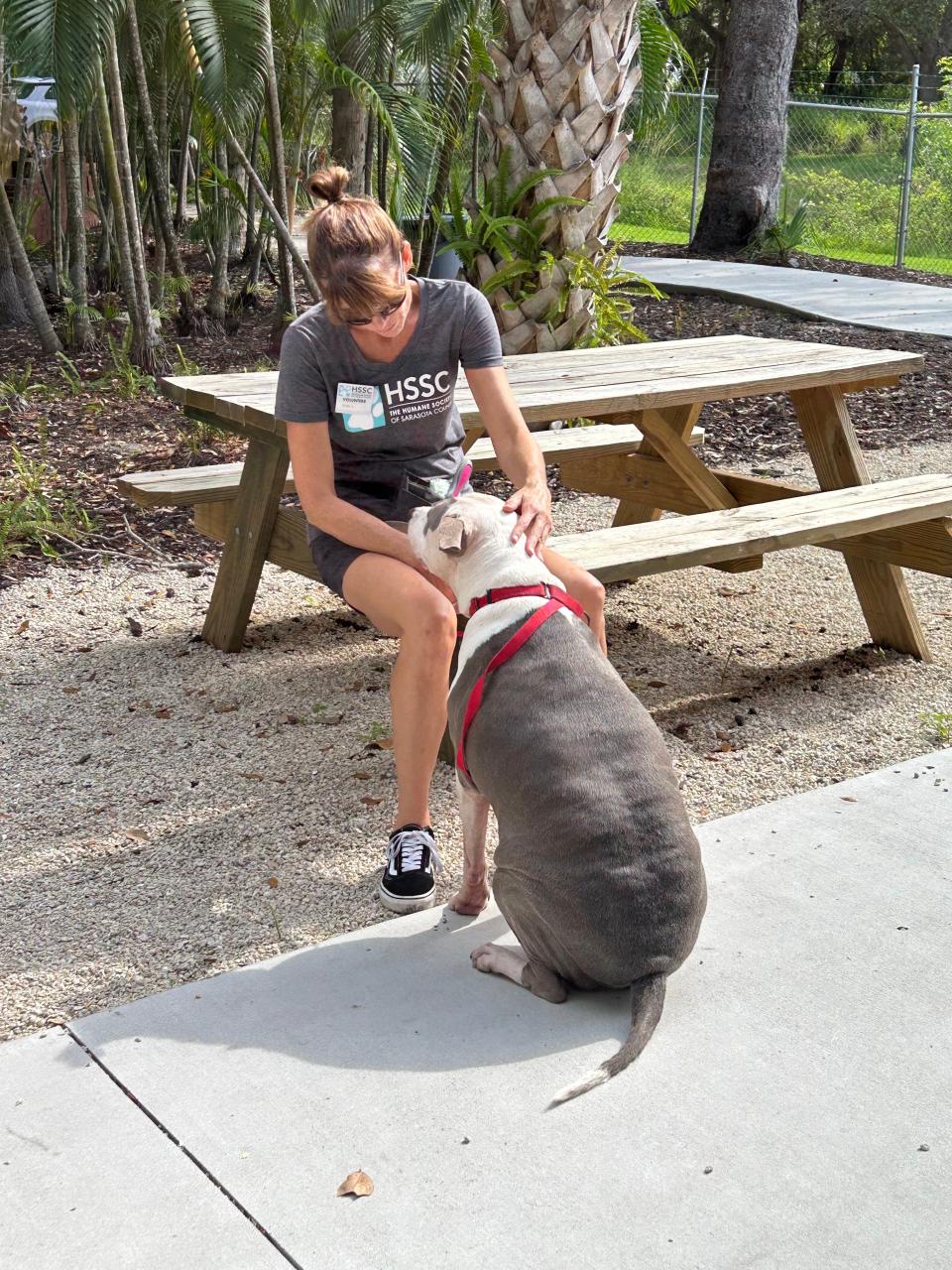Sarasota's 'no-kill' plan will lead to dying animals on city streets
While the Sarasota city commissioners surely have good intentions, imposing a no-kill mandate on Sarasota’s animal shelters would result in dire, unintended consequences for both animals and the public.
That’s exactly what happened in Sumter County last year after its commissioners implemented a no-kill policy. The county shelter quickly swelled to triple its maximum capacity, which led to unsanitary conditions and warehoused animals – as well as numerous reports of people being bitten.

A dog named Noah spent more than 500 days in “confined captivity,” which is a torturous existence for social pack animals who need companionship, exercise, joy and stimulation. Indeed, after visiting the shelter one Sumter County commissioner observed that in "our efforts to be humane, we’ve not been.”
More: City of Sarasota OKs ordinance requiring animal shelters to be 'no-kill' facilities
Facilities with no-kill policies avoid having to euthanize animals by caging them indefinitely and/or not taking in those that need a safe haven. But animals denied shelter will not be saved; they will be left to die on the streets – or to be killed by people who can’t or won’t care for them.
Until the companion animal population is controlled through spaying and neutering, there is simply no humane way for shelters to be “no-kill.” In fact, many experts oppose such policies – including the Colorado Veterinary Medical Association, which states that the no-kill movement "increases animal suffering and threatens public health with unintended consequences.”
And such consequences can be deadly. For example:
In Manatee County, two people reportedly tried to surrender a six-week-old kitten to a shelter but were told that surrenders were by appointment only. They abandoned the kitten in the shelter’s parking lot, where he was eventually run over. The kitten died days later from a crushed skull.
In Putnam County, the taxpayer-funded no-kill shelter reportedly refused – on two occasions – to accept a pack of five dangerous dogs from a resident before they attacked and killed a mail carrier. After her tragic death, the dogs were finally euthanized.
In Miami-Dade County, residents reported that while the number of homeless, hungry dogs continued to increase, the publicly funded no-kill facility remained adamant that it would not take in the animals. Meanwhile, Good Samaritans who found stray animals were told to re-abandon them on the streets.
In Broward County, the publicly funded no-kill facility reportedly left a pit bull on the streets for days after it killed a small dog that was being walked on a leash.
These are just a few of the recent cases in Florida, and there are far more from all across the country. None of them has led to a fate that is preferable to euthanasia.
A better alternative to a no-kill policy is "socially conscious sheltering," which is a progressive model that puts a focus on the quality of life for animals. An increasing number of shelters and communities around the country are embracing this humane approach, including the Suncoast Humane Society in Englewood.

After admitting that its no-kill policy was a failure, Sumter County scrapped it in favor of a socially conscious sheltering model. That’s great news for homeless and vulnerable animals in need of a safe shelter that keeps its doors open to all and doesn't treat them as mere numbers.
The Sarasota city commissioners should adopt socially conscious sheltering and work to end companion animal overpopulation and homelessness at their source. They can accomplish this by passing spay/neuter requirements, requiring residents to responsibly care for their animals and outlawing the unregulated breeding and sale of animals.
Animals in Sarasota deserve no less.
Teresa Chagrin is the manager of animal care and control issues in the cruelty investigations department of People for the Ethical Treatment of Animals.
This article originally appeared on Sarasota Herald-Tribune: Sarasota's no-kill plan will lead to more dying animals

